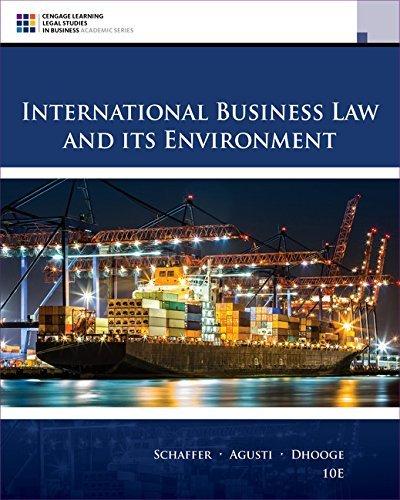Campbell, an Australian citizen, was employed in the construction of health care facilities and schools in Afghanistan.
Question:
1. If Congress did not state in the statute that it applied outside the United States, how did the court arrive at its conclusion.
2. What is meant by the "Bowman Exception?"
Fantastic news! We've Found the answer you've been seeking!
Step by Step Answer:
Related Book For 

International Business Law And Its Environment
ISBN: 9781305972599
10th Edition
Authors: Richard Schaffer, Filiberto Agusti, Lucien J. Dhooge
Question Posted:





